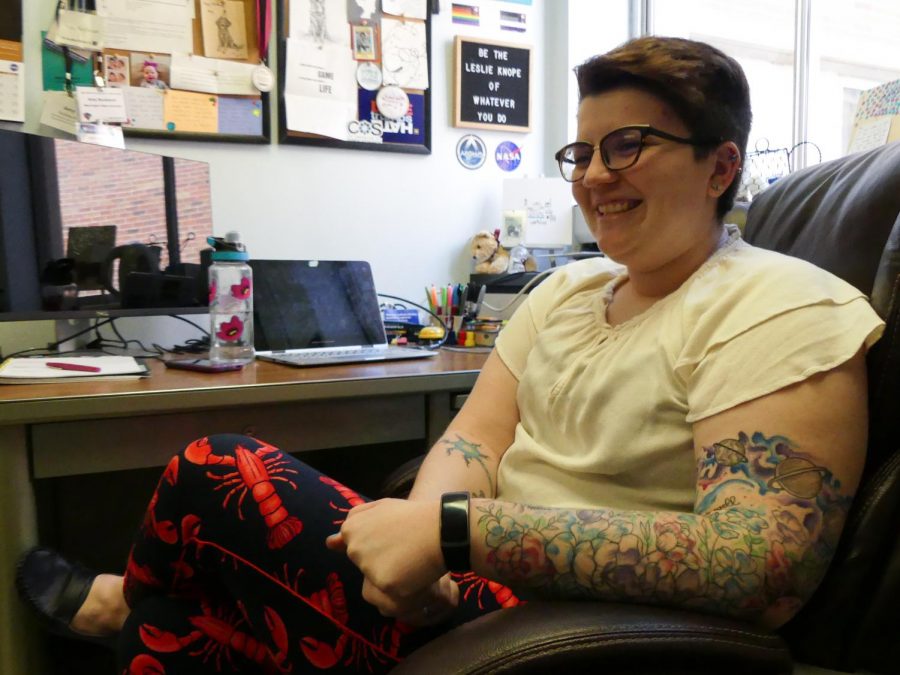Panel to discuss how syllabi impact academic success of first-generation students
Panelists’ goal includes giving first-generation students more advocates, better academic outcomes
JACOB BERTRAM | DAILY EVERGREEN FILE
Amy Nusbaum, assistant professor at Heritage University, said she, Anna Plemons and Samantha Swindell coauthored “Kindness at First Sight: The Role of Syllabi in Impression Formation.”
November 4, 2020
Most first-generation students have to navigate college on their own and sometimes universities are not prepared to deal with their specific needs.
Amy Nusbaum, assistant professor at Heritage University, said she and her co-authors Anna Plemons and Samantha Swindell will be panelists for the event “Supporting the Academic Achievement of First-Gen Students” at 3 p.m. Nov. 6 via Zoom.
The panel will discuss their newly published paper, “Kindness at First Sight: The Role of Syllabi in Impression Formation,” which focuses on how syllabus design impacts the academic success of first-generation students.
The goal of this event is to provide first-generation students with more advocates and better outcomes, Nusbaum said.
“My hope is that people are attending to learn a little bit about how to be good supporters for first-generation students,” she said.
Cougs Rise director Ray Acuña-Luna said the paper’s findings can help faculty members better support first-generation students.
Acuña-Luna said he is leading the planning committee for the events celebrating first-generation students. Some of the events include workshops for first-generation students and faculty members.
Some events will allow first-generation students to share their stories and difficulties, he said.
“One of the things that we wanted to do is showcase the contributions of first-gen individuals,” Acuña-Luna said.
This specific event is targeted toward faculty members, but students are welcomed to participate, he said.
Acuña-Luna said he was a first-generation student and faced several challenges as he navigated through college.
“I couldn’t call home and say ‘Hey mom, dad I’m struggling with biology,’” he said.
Acuña-Luna said his parents were excited about his education but could not provide the academic support he needed because they had not gone to college.
“For first-gen students going to college, there is no existing roadmap,” he said.
Every first-generation students’ journey is different, but Acuña-Luna said he faced challenges common among first-generation students.
“I wish I would have known that I was not alone,” he said.
First-generation students lack role models, Acuña-Luna said.
“First-gen individuals are one of the most ambitious and most self-driven at acquiring a degree,” he said.
Nusbaum said she was also a first-generation student at WSU.
“It’s important to me to be able to get back to that community and hopefully be able to do work and to communicate work that helps that population at WSU,” she said.









